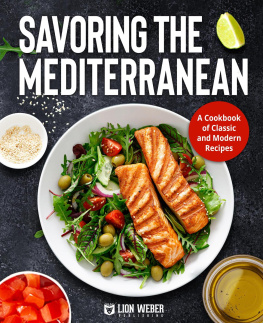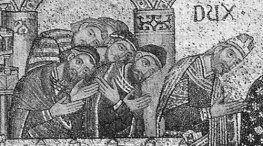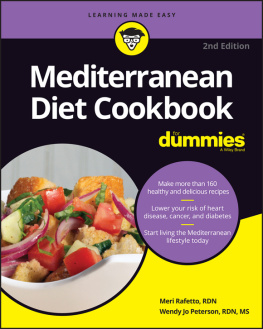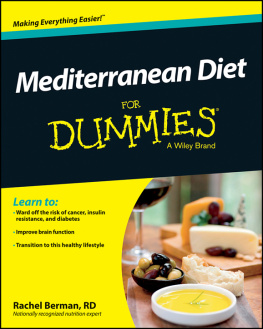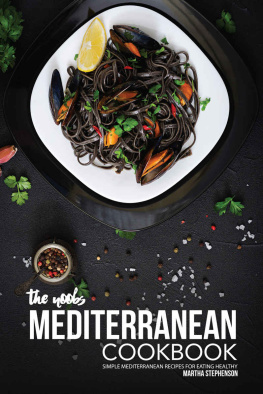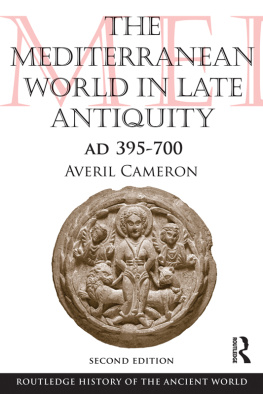SEA OF THE CALIPHS
The Mediterranean in the Medieval Islamic World
CHRISTOPHE PICARD
Translated by Nicholas Elliott

THE BELKNAP PRESS OF HARVARD UNIVERSITY PRESS
Cambridge, Massachusetts London, England
2018
Copyright 2018 by the President and Fellows of Harvard College
All rights reserved
This book was originally published in French as La mer des califes: Une histoire de la Mditerrane musulmane, VIIeXIIe sicle, copyright Editions du Seuil, 2015.
Jacket design: Jill Breitbarth
Jacket illustrations: (above): Sailing boat on the Euphrates, from The Maqamat (The Meetings) by Al-Hariri, c. 1240 (gouache on paper), Al-Wasiti, Yahya ibn Mahmud (13th century)/Bibliotheque Nationale, Paris, France/Photo AISA/Bridgeman Images; (below): detail from the Catalan Atlas, 1375 (vellum), Abraham Cresques (13251387)/Bibliotheque Nationale, Paris, France/Bridgeman Images
978-0-674-66046-5 (alk. paper)
978-0-674-98318-2 (EPUB)
978-0-674-98319-9 (MOBI)
978-0-674-98266-6 (PDF)
THE LIBRARY OF CONGRESS HAS CATALOGED THE PRINTED EDITION AS FOLLOWS:
Names: Picard, Christophe, author.
Title: Sea of the caliphs : the Mediterranean in the medieval Islamic world / Christophe Picard ; translated by Nicholas Elliott.
Other titles: Mer des califes. English.
Description: Cambridge, Massachusetts : The Belknap Press of Harvard University Press, 2018. | This book was originally published in French as La mer des califes: Une histoire de la Mditerrane musulmane, VIIeXIIe sicle, copyright (c) Editions du Seuil, 2015Title page verso. | Includes bibliographical references and index.
Identifiers: LCCN 2017025099
Subjects: LCSH: Mediterranean RegionHistory4761517. | Islamic EmpireHistory, Naval. | Sea-powerIslamic Empire. | AbbasidsHistory, Naval. | ShippingMediterranean RegionHistory. | NavigationMediterranean SeaHistory. | MuslimsMediterranean RegionHistory.
Classification: LCC DS37.8 .P52813 2018 | DDC 909/.0982201dc23
LC record available at https://lccn.loc.gov/2017025099
To Manuela, Benjamin, Alexandre
My profound gratitude to Annliese Nef, Franoise Micheau, and Patrick Boucheron for their support and advice
CONTENTS
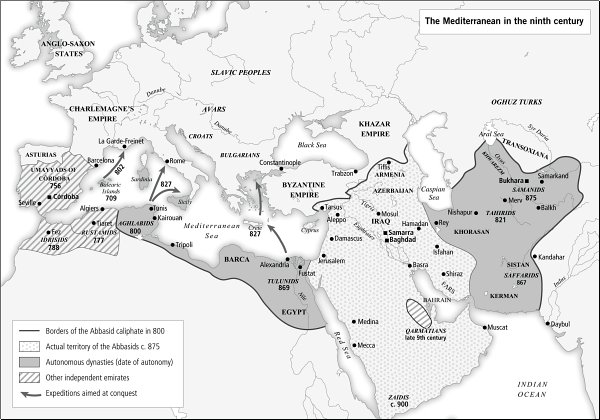
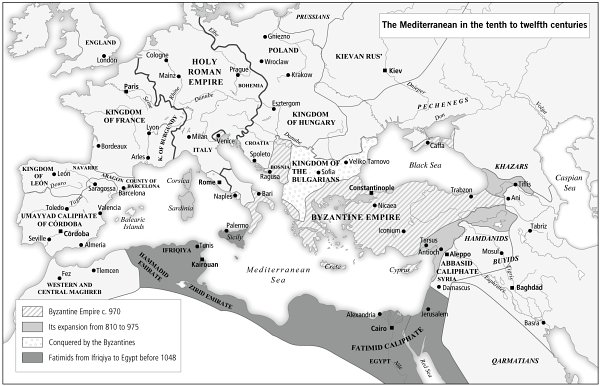
By He who sent Muhammad with the truth,
I will never let any Muslim venture out on it [the Mediterranean]
How could I allow my soldiers to sail on this disloyal and cruel sea?
Umar b. al-Khattab (634644)
THIS STATEMENT, attributed to the man seen by Muslims in the Middle Ages as the greatest caliph of Islam and the initiator According to this view of history, conquering Islams encounter with the maritime space coincides with the period of crisis. As for the Latin period, it is closely tied to the phase of economic expansion.
The accepted version of the seas medieval history holds that before the tenth century, Muslim expansion on the Sea of the Romans (al-bahr
This is how the Muslim pirate came into existence in the annals of Greek and Latin monks, for the victims were the only ones to bear witness
The two half millennia after the fall of Rome and before the discovery of America and the Battle of Lepanto (1571) cannot be separated, for they were both medieval: the rupture that was originally perceived between the High Middle Ages and the time of Latin Ages saw the opening of the Mediterranean to a larger worldthe Sahara, continental Asia, the Indian Ocean, and the areas of the North Sea and the Baltic Sea. Islam contributed significantly to this phenomenon. It was in Baghdad and Iran that the Mediterranean was first described in Arabic, far from the shores of the Sea of Rum, as the Byzantine Mediterranean was known.
The most difficult challenge of the Faithful.
After the twelfth century, the caliphs sailor was once again said to disappear from the history of the Mediterranean, this time due to the Latins. Venice, Pisa, and Genoa gradually chased the Moorish and Saracen pirates out of Mediterranean waters and imposed their remarkable naval and commercial organization throughout the entire Mediterranean world. Joined by the Catalans, they developed the practice of international trade with the Byzantines and Muslims and by the thirteenth century had secured a monopoly on maritime trade, at the expense of Islamic and Greek sailors. At this stage, Muslim and Christian piracy no longer appears in Mediterranean sources, as it were, outside of minor pieces of news. A different history of the Mediterranean is imposed, shaped by Latin endeavors and most often relegating Byzantium and Islams role on the sea to a passive one or that of a victim, particularly in questions of trade.
Since the publication of the works of Braudel and his disciple Maurice Lombard, who returned the Muslim Mediterranean to a central place, the regions history has enjoyed an intense historiographic decompartmentalization, which has modified approaches
Over the last half a century, the study of the lands bordering the sea in the first centuries of the Middle Ages has opened the door to a far different approach to the Mediterranean context. While there are numerous references to crises and catastrophes, these have an uneven impact on cities and rural areas across the region and at different times. The fragmented periods and spaces of crisis brought to light by numerous archeological digs dismiss the argument carefully elaborated by Pirenne.
The focus on social changes to the misdeeds of Moorish and Saracen piracy. Yet no serious speculation is possible at this stage.
At the same time, the foundations for this regionalized history remain fragile insofar as sources are rare and nearly exclusively come from palace circles or the spheres of the military, merchant, judicial, or ecclesiastical aristocracy. Despite the fact that archeologists have allowed us to penetrate
The collection of thousands of letters written by Jewish merchants discovered in the Genizathe storeroom for writings containing the name of Godin the Ben Ezra Synagogue in Cairo shows that the Muslim worlds written sources do not exclusively come from chancelleries and judicial circles. Nonetheless, Goiteins remarkable study emphasizes the exceptional
Before we ask Horden and Purcells question, What is the Mediterranean? we should perhaps first ask ourselves which Mediterranean and what history of the Mediterranean writers and geographers of the time wanted
The Arab scriptural environment had a major impact on the types of documents and content produced by Islams men of letters. Our perception of the maritime societies of the Islamic coastline is therefore affected by the knowledge that the fleets presented in Christian sources as belonging
Whatever scenarios one adheres to regarding the formation and development of a politically divided medieval Mediterranean in a permanent state of war, the populations that appear in the documentation left by the three empires are not ones that were allegedly ruined by the plague and raids of the High Middles Ages until the maritime and merchant Latin powers took over the now-prosperous area. Looked at as a whole, these sources offer another version of the Mediterraneans development: for all the regions, the men of letters more often describe societies increasingly well adapted to mutations, beginning with the crisis of the sixth century and related to permanent confrontation on the vast land and sea frontier. This socioeconomic context, often idealized by administrators and religious men, does not provide an overview of Christian or Muslim society, let alone a comprehensive picture, but it does occasionally allow one to understand how these hardworking populations adapted to constantly changing worlds.


